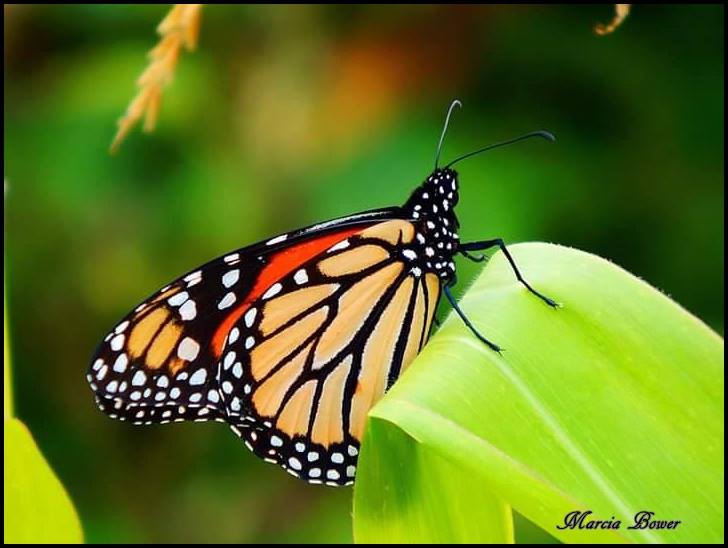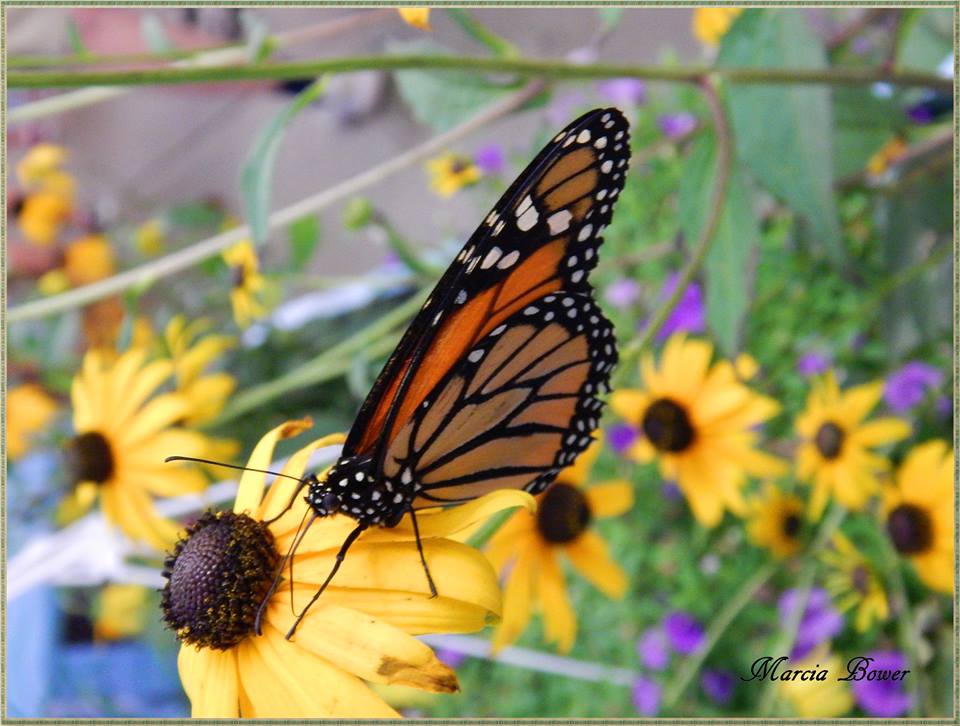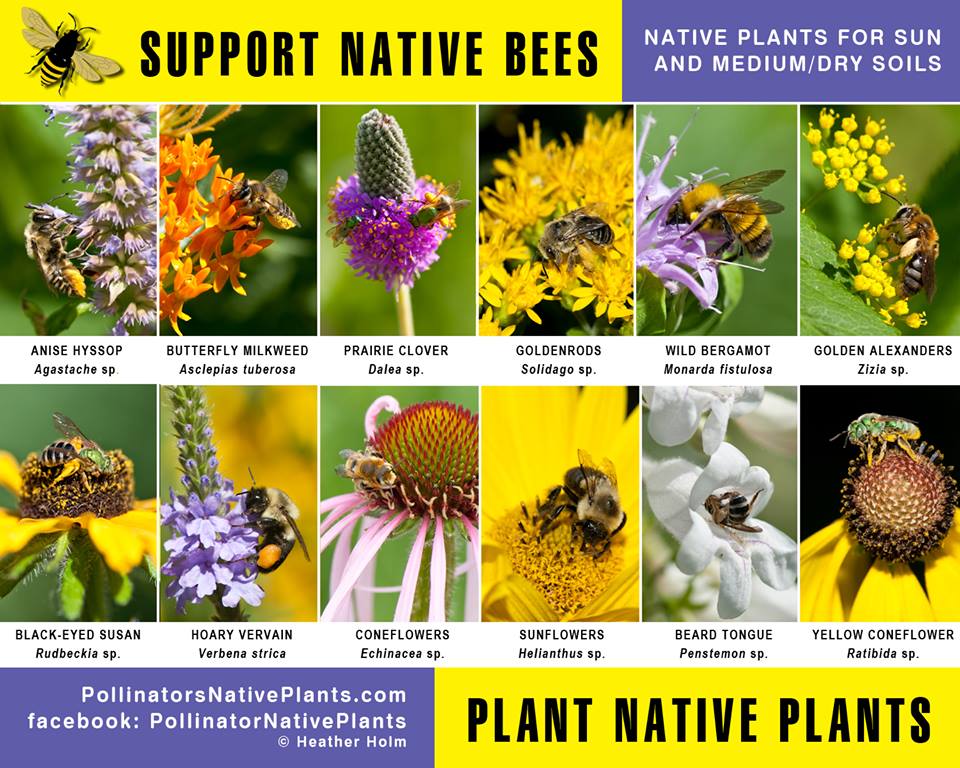Bitter cold as it has been, Spring is certainly on the way and it’s time to think about gardening. With that comes an awareness of those little critters that make all our efforts worthwhile, our pollinators.
Just in time, the Kentucky Department of Agriculture is inviting the general public to participate in the first public “Kentucky Pollinator Protection Forum,” to be held at the Office of State Veterinarian, 109 Corporate Drive Complex, Frankfort, Ky 40601, at 7 p.m. on Wednesday, February 24.

A large group of “stakeholders,” including the KDA, Kentucky State Beekeepers Association, Kentucky Transportation Cabinet, Kentucky Environmental Foundation, AgriBusiness Association of Kentucky, and about 18 other state and regional organizations, have been working in cooperation since 2015, and have all contributed to this program that hopes to educate about, and offer suggestions for, the precarious plight of our native pollinators, who are so essential for our food supply.
They are also wanting to receive public input, while at the same time making information available to the general public, such as best management plans, for a variety of people such as beekeepers, farmers, landowners, and those involved with chemical management of crops. Included are homeowners.
Besides best management plans, they are interested in increasing pollinator habitat, and supporting education and facilitating communication about this important subject. They want the public’s input, so they’re asking, if you can’t attend, please feel free to send your opinions and comments to Dr. Tammy Horn-Potter, Ky. State Apiarist, with the Ky. Dept. of Agriculture. She can be reached via her email at Tammy.Horn@ky.gov., or via her office phone 502-573-0282.
That our pollinators are in big trouble has been the subject of many studies of late. Trying to find the causes of decline has been the subject of countless referendums around the country, such that the Environmental Protection Agency (EPA) has started to require every state to hold two forums on the problem. This forum is the first one for this year, but the department expects to hold another one later in the year in Bowling Green, in July 2016, to go along with the Heartland Apiculture Society. The KDA will publish details on this second forum later.
A tentative forum for the meeting, which will run from 7-9 p.m. is:
7:00 to 7:20 p.m. – Introduction of stakeholders
7:20 to 7:45 p.m. – Summary of the Kentucky Pollinator Protection Plan
7:45 to 8:30 p.m. – Discussion of the plan
8:30 to 9 p.m. – Implementing elements of the plan.
For those who are interested, a draft of the Pollinator Protector Plan can be downloaded from the KDA Honeybee website. As mentioned above, Dr. Horn-Potter is eager to entertain comments and suggestions for the implementation of the plan.
According to the USDA, over 90 US crops are dependent on insect pollinators such as the honey bee. Bee-pollinated crops account for 15-30% of our agriculture crops (USDA 2013). Honeybees are not the only pollinators, of course. Pollinators include multiple species of flying insects including many different species of bees, as well as butterflies, some birds and bats.
As the plan points out, Kentucky historically has held a mixed role in apiculture. Prior to the 20th century, Kentucky’s agriculture was mainly characterized by the cattle and dairy industries. Beekeeping and honey production flourished due to the amount of clover that was planted for the horses and cattle. However the introduction of tobacco began to dominate Kentucky agriculture and the western part of the country began to grow more alfalfas and fruits. Honey production became more of a cottage industry.

Nowadays, with the shift away from tobacco, Kentucky’s land is being used more for cereal type agriculture, equine and manufacturing/urban usage. Unrealized at present for honey production is Kentucky’s vast forests. Honey production via “truck farms” has actually improved in Kentucky, despite rainy seasons and bee losses by beekeepers. According to the Pollinator Plan, the consensus is “with its diverse patchwork of family farms, gardens, orchard and cereal crops, Kentucky is well-positioned to reclaim a leadership role in apiculture.”
There are four main objectives to the Pollinator Plan:
1. Best Management Practices (BMPs): Developed to “reduce the exposure of honey bees and other pollinators to pesticides.” Intended to be voluntary, they are looking to address this issue through education and communication.
2. Increase Pollinator Habitat: Actually a dual-benefit cost cutter, the state is looking at ways it can reduce costs associated with spraying and mowing pollinator habitats. Keeping in mind noxious weed control is still important, the Plan states that “how pollinator habitat is constructed is just as important as increasing it.” Part of this plan is establishing pollinator “protection zones” in otherwise unused areas such as highway divides and right of ways. Pursuant to this is the practice of reclaiming mountain top removal and strip mines in three season forage sites as well as setting up Monarch way stations.
3. Communication: Not meant to be a comprehensive listing, the Plan is looking into opportunities to “get the word out.” Electronic communications from state facilities such as the KDA, the Ky State Beekeers Association, Bee Aware Flags (to mark feral and established bee colonies), and events such as the Kentucky State Fair, county fairs, and conferences, are available to bridge the gap between the experts and the general public.
4. Extension and Outreach: Added to goal #3, this includes public forums such as this one, bringing in additional educational facilities, working on grants, etc.
Suffice it to say, these four goals are by no means limited to the bare bones written above. To get the full picture, please download the document at the link offered above.
Kentucky has had to endure many economic changes in the past decade. The loss of tobacco revenue and the sharp decline in coal mining has left, at least, those two groups of people in an economic quandary, not to mention all of the people who were employed in support positions for those two groups. Kentucky, with its rich tradition of horse breeding and racing, has always been considered an agricultural state, despite its manufacturing prowess. This plan seeks to enhance communication so as to increase pollinator habitat, providing them with nutrition and shelter, as well as enhancing economic development for small farms and businesses. This is a great way for the public to get involved in the far reaching development of this state.
For more information, please visit the following websites at the KDA bee page and the Kentucky beekeepers website.
To ask questions, or put your two cents in, please contact Tammy Horn-Potter, Ky. State Apiarist, with the Ky. Dept. of Agriculture. She can be reached via her email at Tammy.Horn@ky.gov, or via her office phone 502-573-0282 or click on the links above.
Lyn Hacker is a Lexington native raised by Appalachian parents to be not only educated but proficient in the living arts – working very hard, playing music, growing gardens, hog farming, orchard management and beekeeping. The UK graduate has been a newspaper staff writer and production manager, a photography lab manager, a Thoroughbred statistics manager, a Bluegrass singer and songwriter, a registered respiratory therapist, a farmer, a Standardbred horsewoman, a Red Barn Radio promoter and a beekeeper. She lives on a farm in Sadieville.



















